Americas Regional Seat
Government Accountability Project (GAP – USA)’s mission is to promote corporate and government accountability by protecting whistleblowers, advancing occupational free speech, and empowering citizen activists. Founded in 1977, Government Accountability Project is the world’s leading whistleblower protection and advocacy organization. Located in Washington, DC, Government Accountability Project is a nonpartisan, public interest group. In addition to focusing on whistleblower support, it leads campaigns to enact whistleblower protection laws both domestically and internationally.
Since its founding in 1977, Government Accountability Project has defended over 8,000 whistleblowers. Currently, Government Accountability Project’s team includes upwards of 18 attorneys who litigate claims across a variety of different fields. Government Accountability Project is a one-stop shop: it makes sure their clients’ rights are upheld and uses the truth to hold governments and corporations accountable.
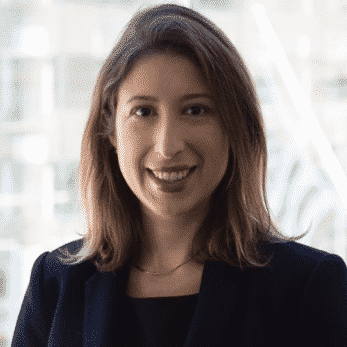 Samantha Feinstein is the Staff Attorney and Deputy Director of the International Program at GAP. She develops and advances whistleblower-rights legislation, represents whistleblower clients, and leads the international program. She leads and participates as a member in thirteen different international and US-coalitions reaching a network of hundreds of organizations working in the transparency, anti-corruption, whistleblower rights, and civil liberties spaces. She has over 19 years of experience – 11 working in international law and development including anti-corruption, international access to justice, good governance, human rights, and humanitarian aid, with a focus on supporting fundraising and competitive proposals.
Samantha Feinstein is the Staff Attorney and Deputy Director of the International Program at GAP. She develops and advances whistleblower-rights legislation, represents whistleblower clients, and leads the international program. She leads and participates as a member in thirteen different international and US-coalitions reaching a network of hundreds of organizations working in the transparency, anti-corruption, whistleblower rights, and civil liberties spaces. She has over 19 years of experience – 11 working in international law and development including anti-corruption, international access to justice, good governance, human rights, and humanitarian aid, with a focus on supporting fundraising and competitive proposals.
Before joining the Government Accountability Project, she worked at the American Bar Association (ABA) Section of International Law and the ABA Rule of Law Initiative. Samantha has also worked at various international development organizations including the International Rescue Committee where she managed their Middle East and their East and Central Africa refugee assistance programs, and Banyan Global where she worked as a consultant to help them win a multi-million-dollar USAID global gender project. She also worked in Brussels as Middle East Policy Advisor the Nirj Deva, UK Member of European Parliament (MEP) and Vice Chairman of the Development Committee.
Samantha holds a B.A. in Government and World Affairs from the University of Tampa, an M.A. in International Relations from Hult International Business School in London, and a J.D. from the University of the District of Columbia David A. Clarke School of Law. She is admitted to practice law in Washington, D.C.
East Asia, Central Asia and Pacific Regional Seat
The Center to Combat Corruption & Cronyism (C4 Center – Malaysia) is a leading, non-partisan anti-corruption centre in Malaysia, dedicated to fighting corruption and cronyism at all levels of government. It seeks to open up governments and change the culture of governance by placing accountability, transparency and integrity at the heart of public policy. It endeavours to promote public participation in ensuring effective checks and balances in government.
Since its inception at the end of 2013, C4 Center has risen exponentially in profile and substance, with courageous whistleblowing, naming and shaming of corrupt officials and strong evidence-based research. C4 Center’s uncompromising stand in addressing the root problems of corruption has made them a leading and unwavering voice for good governance.
 Cynthia Gabriel is a key advocate for human rights and good governance in Malaysia. She has spent most of her professional life in the field of advancing democratic freedoms, reforms and policy change in the country and region. She has received the prestigious democracy award by the National Endowment for Democracy, which was given to her at the United States Congress by Speaker Paul Ryan. After the political change that followed the May 2018 general election, Cynthia has been appointed into the powerful 1MDB special committee by the Council of Eminent Persons, as well as to the council to develop a national anti-corruption plan that will report directly to the Prime Minister.
Cynthia Gabriel is a key advocate for human rights and good governance in Malaysia. She has spent most of her professional life in the field of advancing democratic freedoms, reforms and policy change in the country and region. She has received the prestigious democracy award by the National Endowment for Democracy, which was given to her at the United States Congress by Speaker Paul Ryan. After the political change that followed the May 2018 general election, Cynthia has been appointed into the powerful 1MDB special committee by the Council of Eminent Persons, as well as to the council to develop a national anti-corruption plan that will report directly to the Prime Minister.
Cynthia holds degrees in science and law. After brief stints in the private sector, worked as a lecturer at Monash University and collaborated with several United Nations research initiatives in the field of democracy & human rights (OHCHR), governance, organized crime and anti-corruption (UNODC). She served on the international board as Vice President of the International Federation for Human Rights (FIDH) and co-founded the Asia Forum for Human Rights and Development (FORUM ASIA) network. Cynthia has been featured on CNN, BBC World, the Australian Broadcasting Corporation, Al Jazeera, the New York Times and the Washington Post as a leading human rights advocate and expert on corruption scandals involving Malaysia’s political leadership.
In 2014, together with senior civil society advocates, she co-founded the Centre to Combat Corruption and Cronyism (C4) and serves as its Executive Director.
Europe Regional Seat 1
Sherpa (France), founded in 2001, has set its mission to protect and defend victims of economic crimes drawing on the power of the law and to fight against the new forms of impunity linked to globalization. Its vision is to help build a world where law is in service of a more mindful globalization. Sherpa gathers an expert team of lawyers, using new legal tools, strategic litigation and advocacy campaigns, along with pro bono representation from committed international lawyers. Sherpa has a program on Illlicit Financial Flows. Whether linked to corruption or to tax evasion by multinational corporations, illicit financial flows constitute a major challenge to development.
As the first NGO to file a complaint in France against ill-gotten gains cases, Sherpa is active before French courts and authorities on the return of the proceeds of corruption (Rifaat Al-Assad case for example). It has an expertise on the role of financial intermediairies in money laundering and tax evasion schemes and is an active member of the French Tax Havens Platform. Finally, Sherpa also advocates for a better protection for whistleblowers as the founding member of La maison des lanceurs d’alerte, a French NGO created on the issue.
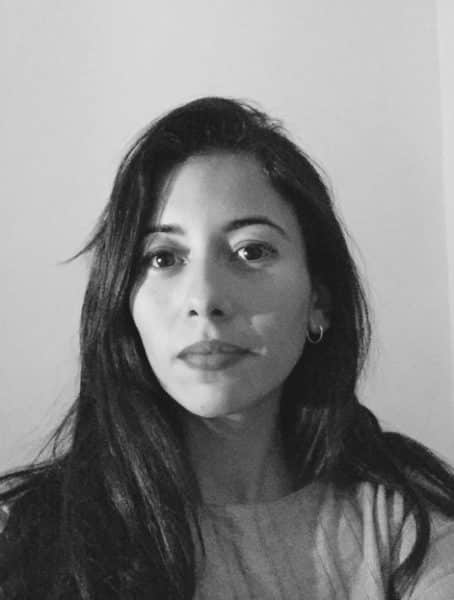 Chanez Mensous is the Advocacy and Litigation Officer for Sherpa’s Illicit Financial Flows program. As a lawyer specialized in banking and financial law, as well as a PhD candidate in European law, her research focused on systemic risk, vulnerabilities for the Eurozone financial system and the necessity of promoting a more resilient financial system.
Chanez Mensous is the Advocacy and Litigation Officer for Sherpa’s Illicit Financial Flows program. As a lawyer specialized in banking and financial law, as well as a PhD candidate in European law, her research focused on systemic risk, vulnerabilities for the Eurozone financial system and the necessity of promoting a more resilient financial system.
Chanez previously worked for around four years at a bank, within an asset management company as well as in international law firms in Paris and Luxembourg, allowing her to acquire a good understanding of banking and finance-related issues. She is currently working on academic research on the subjects of European financial law and the financial stability of the EU. She also teaches European law, finance and banking regulation at a university level, as well as at Sciences Po Paris.
Chanez joined Sherpa in 2019 as legal advisor at the illicit financial flows department, working on strategic corruption litigation cases and advocacy on anticorruption issues in public policy. She speaks English, German and Arabic.
Europe Regional Seat 2
Stefan Batory Foundation (SBF – Poland) is focused on building an open, democratic society – a society of people aware of their rights and responsibilities, who are actively involved in the life of their community, country and international society. Since 2000, the Foundation has run the Public Integrity Program (earlier the Anti-corruption Program). The Program focuses on efforts to ensure the transparency of the legislative process and opening it up to the voice of citizens; the limitation of the risks of corruption, nepotism and cronyism linked to the conflict of interest in public life; and to strengthen the role and legal protection of whistleblowers. The Program’s team monitors processes and events which affect the integrity of public life, and makes proposals and recommendations aiming at improving the standards of public life and curbing corruption. The team further takes measures to develop, disseminate and implement solutions which comply with the standard of good governance and accountable government. The Foundation cooperates with other organisations and institutions both in Poland and internationally.
 Grzegorz Makowski is the Program Director of the Public Integrity Program. He holds a PhD in sociology and one of his academic specialisations is the problem of corruption and anti-corruption policy. He is author of a number of publications on this topic – research reports, articles and journalistic texts. He is involved in several research and monitoring projects focusing on corruption. Among others, he is the lead researcher for Polish part of the European National Integrity System monitoring conducted by Transparency International (2010-2012), earlier in 2010, and was also lead researcher for the Global Integrity Index in Poland. He is currently an expert of the European Commission for the EU Anti-Corruption Report. He has also participated in the ANTICORP research project, funded by the EU. Since 2015 he has been a member of the UNCAC Coalition Coordination Committee.
Grzegorz Makowski is the Program Director of the Public Integrity Program. He holds a PhD in sociology and one of his academic specialisations is the problem of corruption and anti-corruption policy. He is author of a number of publications on this topic – research reports, articles and journalistic texts. He is involved in several research and monitoring projects focusing on corruption. Among others, he is the lead researcher for Polish part of the European National Integrity System monitoring conducted by Transparency International (2010-2012), earlier in 2010, and was also lead researcher for the Global Integrity Index in Poland. He is currently an expert of the European Commission for the EU Anti-Corruption Report. He has also participated in the ANTICORP research project, funded by the EU. Since 2015 he has been a member of the UNCAC Coalition Coordination Committee.
Middle East and North Africa Regional Seat
Jordan Transparency Center (JTC – Jordan) is a non-government and non-profit organisation aiming at enhancing transparency, accountability, governance and fighting corruption through active civic participation and monitoring. JTC has organised and participated in many workshops and conferences in and outside Jordan, including hosting of the First Regional Forum, in collaboration with the Dutch Embassy and NED, entitled “Strengthening Citizenship and Combating Corruption in the Arab Region” in Amman. JTC founded a National Consortium in Jordan to push for amendments to national access to information laws, and also conducted a study on the Carter Center’s access to information Implementation Assessment Tool on seven public agencies in Jordan. JTC is currently working on a project to ensure smooth implementation of national access to information legislation.
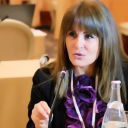 Hilda Ajeilat has been JTC president since her election in February 2012. She has successfully managed to transform JTC from a small, local NGO to a key player in Jordan and MENA by exhibiting leadership, perseverance and commitment.
Hilda Ajeilat has been JTC president since her election in February 2012. She has successfully managed to transform JTC from a small, local NGO to a key player in Jordan and MENA by exhibiting leadership, perseverance and commitment.
She has good contacts with local, regional and international organisations, and has participated as a keynote speaker in many national, regional and international forums. At the national level, she’s a member at the economic policy development forum chaired by Senator Dr. Talal Abu Ghazaleh. At the regional level, she has been elected as a Coordinator of the NGOs group of ACINET in the 5th Ministerial Meeting of ACINET held in Tunis. At the international level, she’s an elite panel member of Global Honorary Board Advisors for the Confederation of International Accreditation Commission.
Ms. Ajeilat has been the head of the liaison office of three public universities; Director of the Quality Assurance & Accreditation Office, Philadelphia University; General Manager of Al-Hussein Fund for Excellence; President’s Consultant for Quality Assurance & Accreditation, Middle East University in Jordan; and Consultant for Quality Assurance & Accreditation Council, Association of Arab Universities.
South Asia Regional Seat
Transparency International Sri Lanka (TISL) is a National Chapter of Transparency International (TI). TISL raises awareness on the damaging effects of corruption and works with the government, public sector, business and civil society to develop and implement effective measures to tackle it.
Through its Advocacy and Legal Advice Centre, TISL assists victims and witnesses of corruption to access justice. Acting as a watchdog on emerging issues, TISL makes public calls to action from relevant entities. The only non-governmental organisation in Sri Lanka that exclusively focuses on corruption, TISL also undertakes strategic litigation challenging draft laws and in the public interest. TISL’s key achievements include its contribution to the drafting and implementation of the Right to Information Act of Sri Lanka including widespread citizen awareness-raising across the country; successfully carrying out Accountability Lab’s Integrity Icon campaign in Sri Lanka for three consecutive years; its contribution to the drafting of a Proceeds of Crime Framework for Sri Lanka, and an advocacy and publicity campaign that led to a historic move by five and subsequently more Members of Parliament to proactively disclose their asset declarations publicly.
 Sankhitha Gunaratne is the Deputy Executive Director and Senior Manager of Programs at Transparency International Sri Lanka. She is a graduate of the Faculty of Law, University of Colombo, attorney-at-law. A Chevening scholar with a Master of Arts in Corruption and Governance from the University of Sussex, she has also received an award for Outstanding Corruption Analysis from the Centre for the Study of Corruption, as well as the MacFarlanes Prize for best dissertation. She has experience in legal practice in company and tax law, and has worked with multiple governance-related civil society organisations prior to joining TISL.
Sankhitha Gunaratne is the Deputy Executive Director and Senior Manager of Programs at Transparency International Sri Lanka. She is a graduate of the Faculty of Law, University of Colombo, attorney-at-law. A Chevening scholar with a Master of Arts in Corruption and Governance from the University of Sussex, she has also received an award for Outstanding Corruption Analysis from the Centre for the Study of Corruption, as well as the MacFarlanes Prize for best dissertation. She has experience in legal practice in company and tax law, and has worked with multiple governance-related civil society organisations prior to joining TISL.
Her past work within TISL spans from project management to advocacy and community training. Representing TISL, Sankhitha has contributed to the drafting of the Proceeds of Crime framework, right to information, campaign finance and asset declaration laws in Sri Lanka. Her particular focus includes the right to information, election campaign finance, public sector integrity, private sector corruption and international asset recovery, having been an ardent advocate for policy and legislative reform in these areas.
Sub-Saharan Africa Regional Seat 1
Anti-Corruption Coalition Uganda (ACCU – Uganda) was formed in January 1999 and later registered as a Non-Governmental Organisation (NGO) in 2004 with the sole objective of providing a forum through which various anti-corruption actors can enhance their capabilities and act as one strong voice that can effectively engage government on issues of corruption. ACCU works with national Civil Society Organizations (CSOs) engaged in the accountability sector. At the local level ACCU works with and through Regional Anti-Corruption Coalitions (RACCs) that are spread out in the various parts of the country and of recent grass root member organisations.
ACCU’s vision is seeing “A transparent and corruption-free society.” Our mission is “To empower citizens to actively and sustainably demand transparency and accountability from public and private sectors.” ACCU has led various campaigns such as the Black Monday campaign, return our money campaign etc
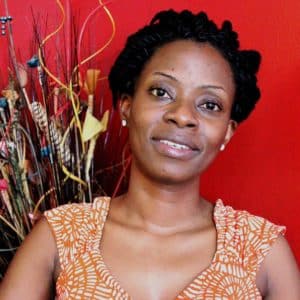 Cissy Kagaba is a lawyer and works with the Anti- Corruption Coalition Uganda (ACCU). Cissy has a considerable wealth of experience in human rights and governance-related issues having worked with the Uganda Human Rights Commission. Her input to Uganda’s anti-corruption legislation has seen some of her suggestions get incorporated in the final legislation such as the Whistleblowers Protection Act and the Leadership Code Amendment Act.
Cissy Kagaba is a lawyer and works with the Anti- Corruption Coalition Uganda (ACCU). Cissy has a considerable wealth of experience in human rights and governance-related issues having worked with the Uganda Human Rights Commission. Her input to Uganda’s anti-corruption legislation has seen some of her suggestions get incorporated in the final legislation such as the Whistleblowers Protection Act and the Leadership Code Amendment Act.
Cissy has served as a consultant, trainer and facilitator on a wide range of issues with various organizations such as MS- Denmark’s Thematic Program Policy on Anti-Corruption in TCDC Arusha. She has evaluated the performance of Uganda’s Accountability Sector, trained local government officials in various districts in Uganda, trained the Uganda Police Force, Faculty facilitator with International Law Institute, Friedrich Ebert Stiftung, etc. She has led various anti-corruption campaigns such as Black Monday; Return our Money campaign, judicial campaign, spearheaded the branding of government drugs, etc
Cissy is also a board member of the UNDP-Government of Uganda Institutional Effectiveness program, and member Partnership for Transparency Fund (Africa Region). She is a regular analyst on governance issues with the print and broadcast media.
Sub-Saharan Africa Regional Seat 2
Africa Centre for Open Governance (AfriCOG – Kenya) has a vision of a Kenya and Africa in which citizens and civic organizations are vigilant over public life and actively watch over politics and the economy. Our mission is to build and entrench an anti-corruption culture and integrity in public life through informed and determined action in the public and private sectors. To do this we use research to inform our advocacy, promote the growth of investigative journalism, employ strategic litigation and build and backstop effective coalitions and partnerships at local and international levels.
AfriCOG has won significant cases with its partners, e.g. against attempts to curtail the power of the Auditor General. AfriCOG has attained prominence through its courageous and impactful research and advocacy governance, electoral management, accountability for political violence, resistance to the curtailment of civic space and for meaningful implementation of Kenya’s 2010 Constitution, particularly its landmark provisions on leadership and integrity and accountable management of public resources. AfriCOG was a founding member of the Open Government Partnership international steering committee.
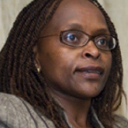 Gladwell Otieno is the Executive Director of AfriCOG. She worked at TI in Berlin, then moved to South Africa to the Institute for Security Studies. She then joined TI-Kenya as its Executive Director, following the appointment of her predecessor, John Githongo, to the Office of the President as the governance and anti-corruption adviser. Unfortunately, as corruption reasserted its hold over the Kibaki government, John Githongo fled into exile and Gladwell was forced out of TI-Kenya. She then founded AfriCOG, chaired by John Githongo.
Gladwell Otieno is the Executive Director of AfriCOG. She worked at TI in Berlin, then moved to South Africa to the Institute for Security Studies. She then joined TI-Kenya as its Executive Director, following the appointment of her predecessor, John Githongo, to the Office of the President as the governance and anti-corruption adviser. Unfortunately, as corruption reasserted its hold over the Kibaki government, John Githongo fled into exile and Gladwell was forced out of TI-Kenya. She then founded AfriCOG, chaired by John Githongo.
With her colleagues, Gladwell became a major target of government hostility as one of the leaders of a coalition called Kenyans for Peace with Truth and Justice, which militated for accountability for misgovernance, rigged elections and the mass violence that followed them in 2008 and led to the prosecution of the president and his deputy at the International Criminal Court.
Gladwell studied Political Science and French at the University of Massachusetts Boston and the Free University, Berlin. She chairs the Board of the African Leadership Centre, Kings College, London, and is on the board of the Global Initiative Against Transnational Organised Crime.
International Member Organisation Seat 1
Access Info Europe is a human rights organisation specialising in promoting and protecting the fundamental right of access to information. Access Info’s mandate, as established by its statutes, is to promote and protect the right of access to information in Europe as a tool for defending human rights, for promoting public participation in decision making, and for holding governments accountable.
Access Info was founded on 26 June 2006 by European and international experts in access to information in order to meet the need in Europe for an organisation dedicated to promoting the right of access to information. Established as a not-for-profit, non-governmental association under Spain’s Law on the Right of Association, the Ley Orgánica 1/2002, the registration was confirmed by decision of Spain’s Ministry of Interior on 2 October 2006 (registration number 587828).
Headquartered in Madrid, Access Info’s highly specialised team of around 8 experts in the right of access to information, runs projects across Europe and globally. It is strongly committed to working in partnership with other organisations, and believe in the increased impact that organised networks such as the UNCAC Coalition can have.
 Helen Darbishire is a human rights activist specialising in the right of public access to information, and the development of open and democratic societies with participatory and accountable governments. Helen is currently serving her second term as a member of the Open Government Partnership Global Steering Committee and on the Advisory Board of the International Open Data Charter.
Helen Darbishire is a human rights activist specialising in the right of public access to information, and the development of open and democratic societies with participatory and accountable governments. Helen is currently serving her second term as a member of the Open Government Partnership Global Steering Committee and on the Advisory Board of the International Open Data Charter.
Helen started her career as a project manager at Article 19 (1989-1998), based in London and Paris. Then with the Open Society Institute (1999-2005) she directed programmes on freedom of expression and freedom of information based in Budapest and New York, before founding Access Info in 2006.
Helen has provided expertise to a wide range of non-governmental and inter-governmental organisations, including UNESCO, the Council of Europe, the OSCE, and the World Bank. Darbishire has previously served on the boards of a number of CSOs, including ALTER-EU, Fundación Civio (Spain), DATA (Uruguay), Diritto di Sapere (Italy, of which she is a founder), and the Request Initiative (UK).
International Member Organisation Seat 2
Transparency International gives voice to the victims and witnesses of corruption. We work together with governments, businesses and citizens to stop the abuse of power, bribery and secret deals. Transparency International, the global civil society organisation leading the fight against corruption, brings people together in a powerful worldwide coalition to end the devastating impact of corruption on men, women and children around the world.
Through its International Secretariat in Berlin, Germany, and national chapters in over 100 countries around the world, Transparency International works at the national and international levels to create change towards a world free of corruption. The TI Secretariat focuses on the global and regional fight against corruption and assists national chapters in enhancing their anti-corruption skills. It coordinates initiatives within geographical regions and provides methodological support on the tools and techniques to fight corruption. It also serves as the driving force on international issues such as anti-corruption conventions, and other cross-border initiatives. It serves as a knowledge management centre, capturing and disseminating best practice and developing new approaches to tackle corruption.
Read more about TI’s mission, vision, values and guiding principles.
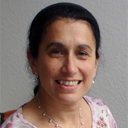 Gillian Dell studied law at the University of California-Berkeley and at the Université Libre de Bruxelles and has a BA degree from Oxford University. Prior to joining Transparency International (TI) in 1997, she worked as a lawyer in a New York law firm; as a research fellow on international trade law issues at the Freie Universität Berlin; as a consultant at the United Nations; and as a law lecturer and administrator at an American university study centre in Berlin. She has also worked with several human rights organisations. At TI she managed the TI International Conventions programme for almost 20 years, covering international anti-corruption instruments including the UN Convention against Corruption. In 2006, together with Kirstine Drew of UNICORN – the Trade Union Anti-Corruption Network, she co-convened the UNCAC Coalition (originally called the Coalition of Civil Society Friends of the UNCAC) and continued to serve as convenor up to the election of the first Coordination Committee in April 2011.
Gillian Dell studied law at the University of California-Berkeley and at the Université Libre de Bruxelles and has a BA degree from Oxford University. Prior to joining Transparency International (TI) in 1997, she worked as a lawyer in a New York law firm; as a research fellow on international trade law issues at the Freie Universität Berlin; as a consultant at the United Nations; and as a law lecturer and administrator at an American university study centre in Berlin. She has also worked with several human rights organisations. At TI she managed the TI International Conventions programme for almost 20 years, covering international anti-corruption instruments including the UN Convention against Corruption. In 2006, together with Kirstine Drew of UNICORN – the Trade Union Anti-Corruption Network, she co-convened the UNCAC Coalition (originally called the Coalition of Civil Society Friends of the UNCAC) and continued to serve as convenor up to the election of the first Coordination Committee in April 2011.
From 2006 – 2018 she led the TI team that served as UNCAC Coalition secretariat, coordinating the Coalition’s submissions and activities at UNCAC meetings. She is the author of articles and opinion pieces on international trade, UNCAC and foreign bribery. From 2005 to 2013 and again in 2018 she co-authored TI’s progress report on OECD Convention enforcement, now called the Exporting Corruption Report.
Individual Member Seat
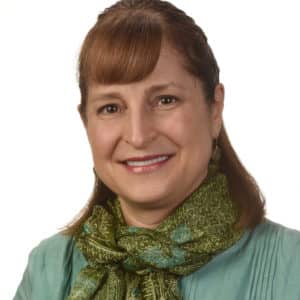 Shaazka Beyerle is a senior fellow at the Terrorism, Transnational Crime and Corruption Center, George Mason University, and a senior research advisor for the United States Institute of Peace‘s (USIP) Program on Nonviolent Action. She’s a researcher, writer and educator in nonviolent action, with a focus on anti-corruption, accountability (including linkages to governance, development, and violent conflict) as well as gender and nonviolent action.
Shaazka Beyerle is a senior fellow at the Terrorism, Transnational Crime and Corruption Center, George Mason University, and a senior research advisor for the United States Institute of Peace‘s (USIP) Program on Nonviolent Action. She’s a researcher, writer and educator in nonviolent action, with a focus on anti-corruption, accountability (including linkages to governance, development, and violent conflict) as well as gender and nonviolent action.
She’s the author of Curtailing Corruption: People Power for Accountability and Justice. She was previously the lead researcher for a World Bank-Nordic Trust Fund project and co-author of the subsequent report, Citizens as Drivers of Change: Practicing Human Rights to Engage with the State and Promote Transparency and Accountability. In 2016, she was a visiting professor at the University for Peace, and in 2014, testified at a US Congress Helsinki Commission on combating corruption in the OSCE region.
She speaks frequently at conferences, workshops, universities and webinars, such as: Columbia Law School Center for Public Integrity; George Washington University Law School; Global Partnership for Social Accountability Global Partners Forum; Harvard University; International Anti-Corruption Conferences; ParlAmericas Open Parliament Network; Third Conference of States Parties-UNCAC; Transparency International Summer School on Integrity; and the World Bank Fragility Forum.
Honorary member seat
This seat is currently vacant.



